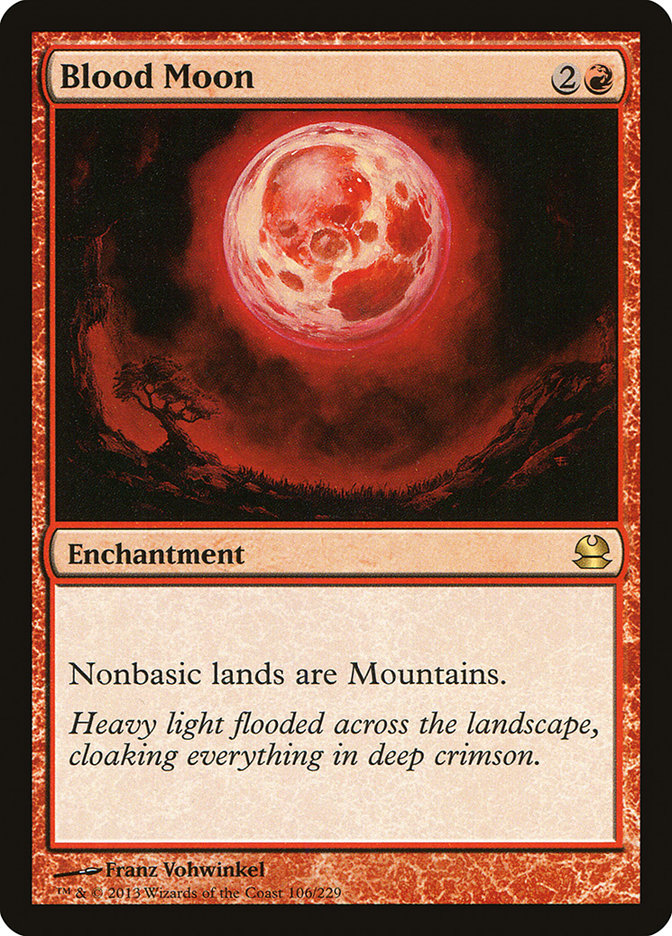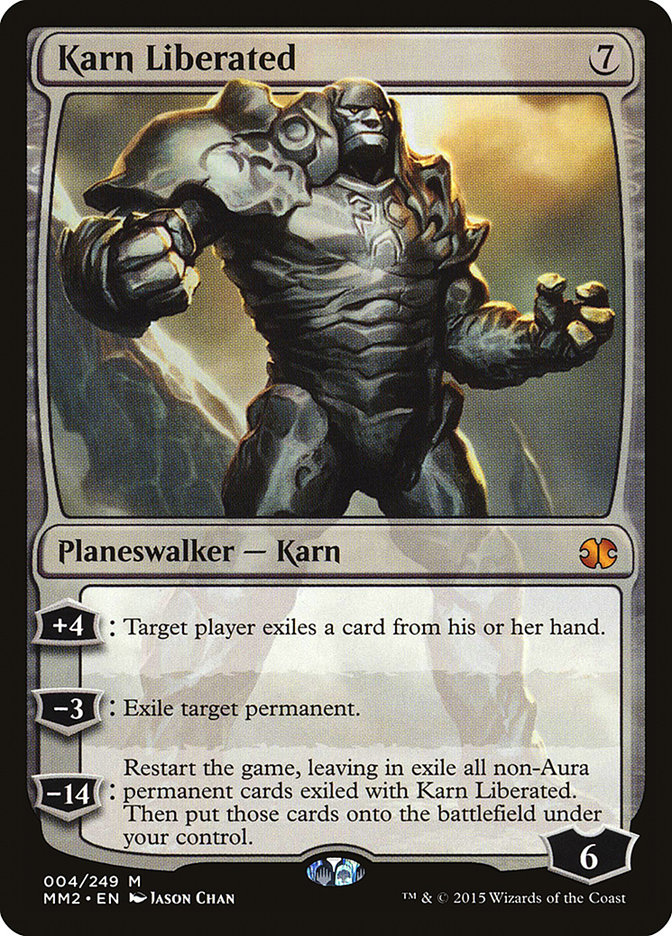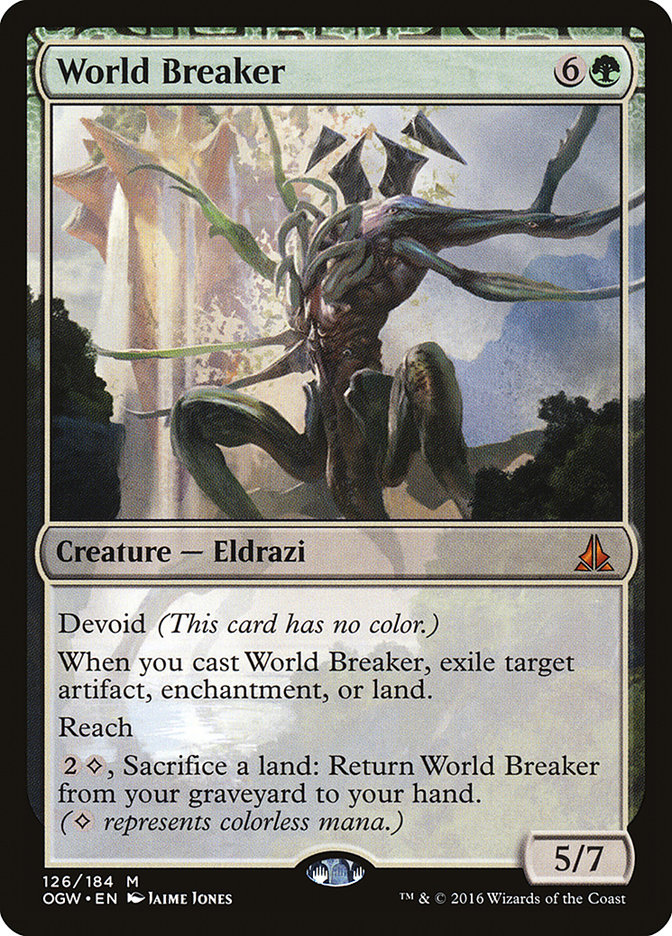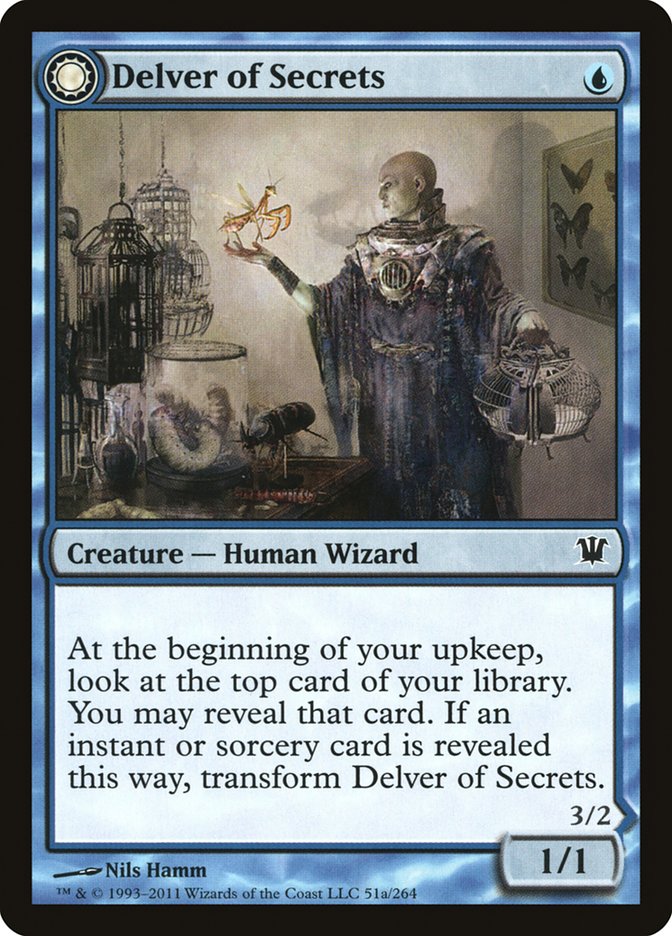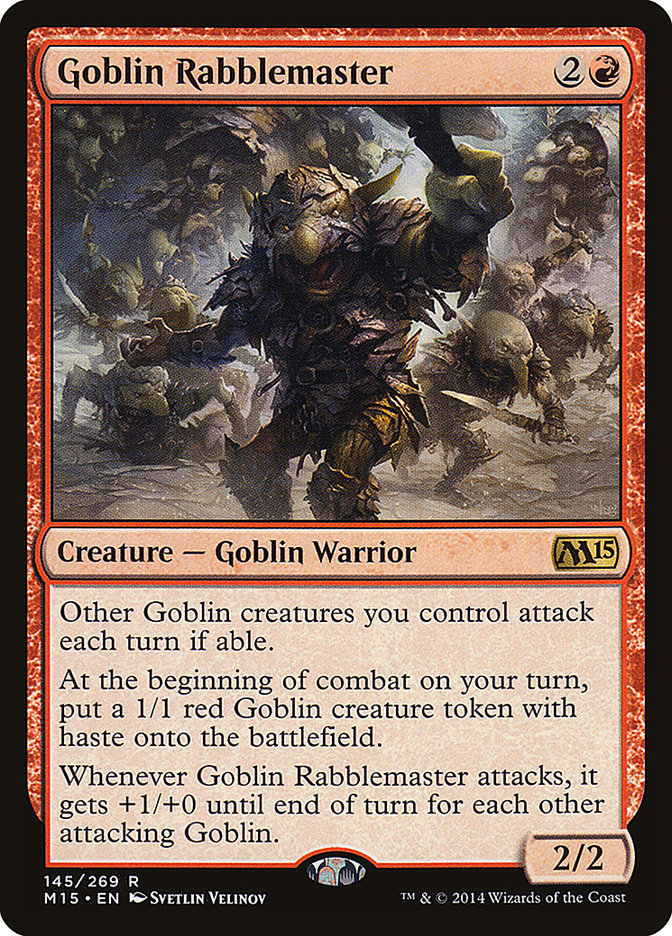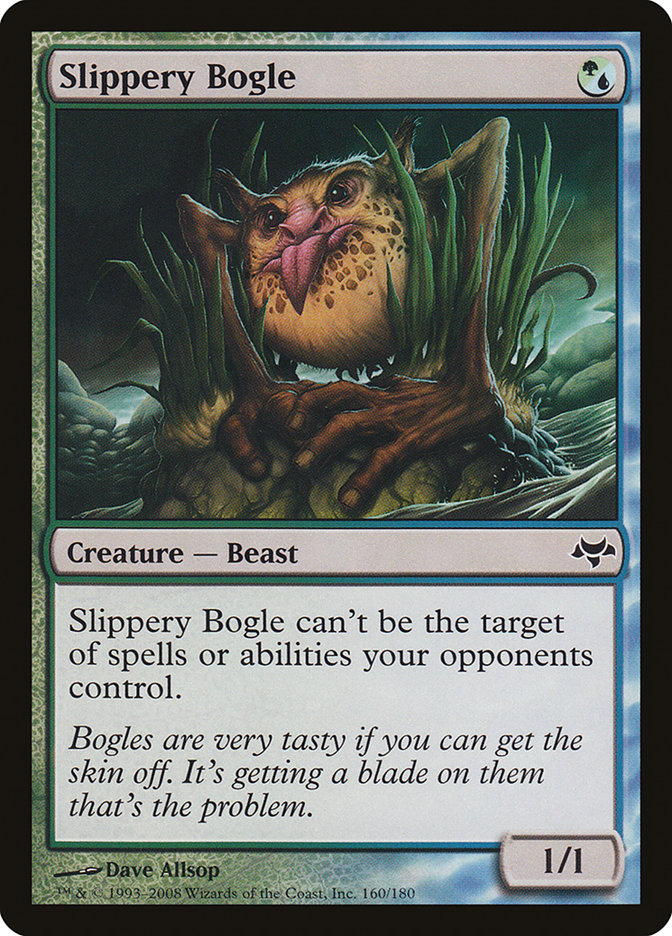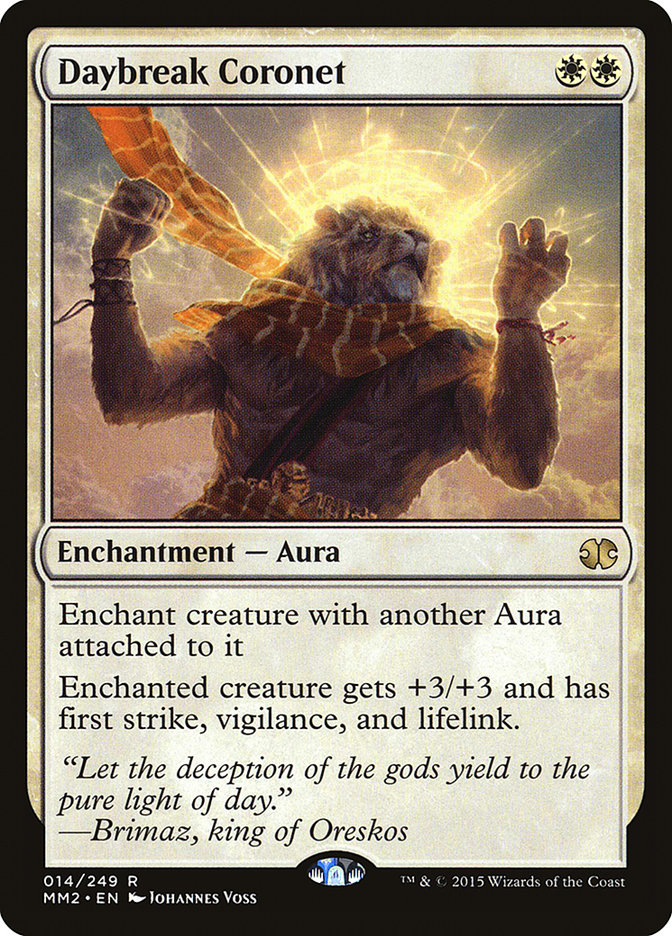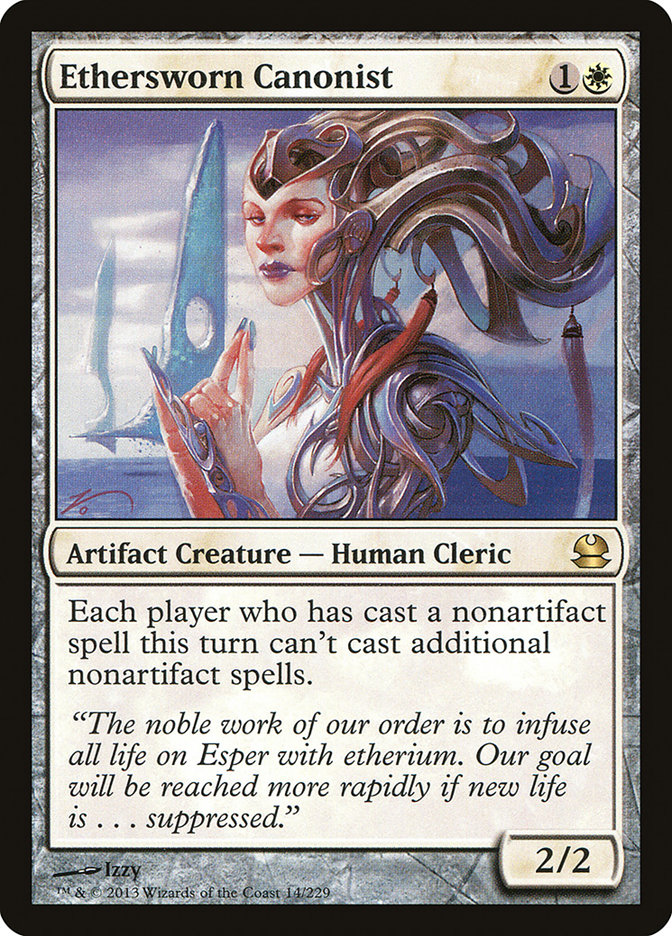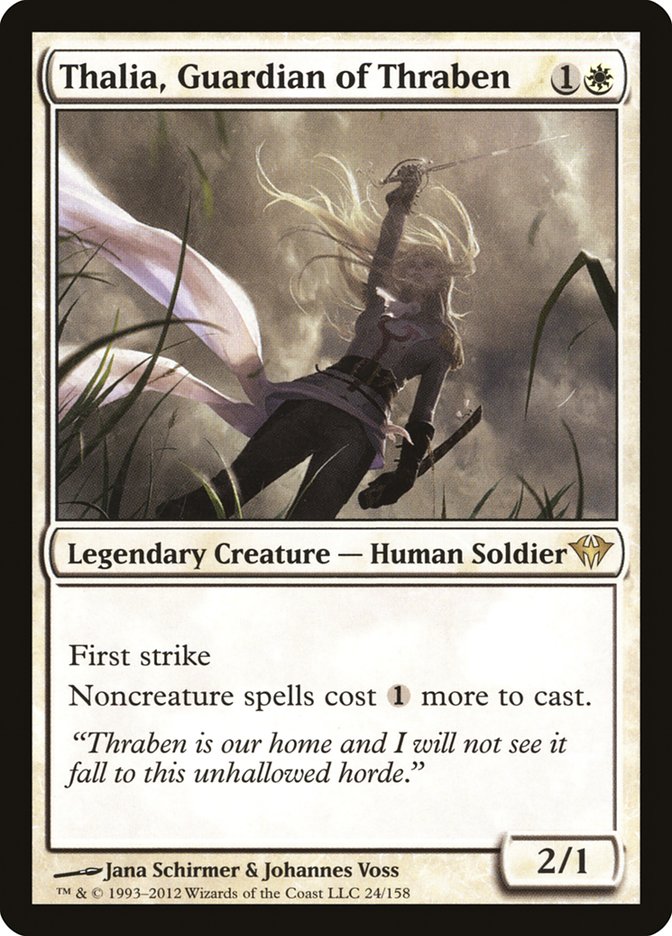One of the most overused and nonsensical terms Magic players employ on an almost daily basis is, when talking about their losses, they “didn’t get to play Magic.” I always find this humorous because, at some point, they pulled their deck out, shuffled it, presented it, drew cards, and then the game took on a life of its own.
If everyone wanted to play Magic in the same way, aggressive decks would cease to exist. Games wouldn’t be over by turn 4 or 5.
If everyone wanted to play Magic the same way, control decks would cease to exist. Playing a land and passing for the first ten turns would never happen.
If everyone wanted to play Magic in the same way, combo decks would cease to exist. No more turn 1 or 2 kills and no more fizzling out when things don’t pan out properly.
In this beautiful world where we all get to play Magic, each person would come to a tournament with their iteration of a midrange deck. We would all slam reasonably priced creatures against themselves, battle over removal spells, pack disruption and planeswalkers, and be bored to tears. You think you wouldn’t, but trust me, you would.
The Curious Case of Blood Moon
As far as cards go that players lament the existence of, Blood Moon is near the top of the list.
Effectively turning all nonbasic lands into Mountains, Blood Moon wrecks the structural foundation of formats like Modern and Legacy (but far more in Modern) in that these decks all survive off of a wealth of nonbasic lands. Dual, shock, fetch, creature, and plenty more lands suffer the slings and arrows of Mountainhood when a Blood Moon enters the battlefield.
In truth, Blood Moon gives players more free wins than just about any other card in Magic right now.
Blood Moon is the actualization of that statement “I didn’t get to play Magic.” It is the literal interpretation. It is the physical manifestation. Blood Moon is the devil in the flesh, and it does everything it can to keep you from resisting by sapping your resources. Draw. Discard. Pass. Blood Moon has kept more creatures from entering the battlefield, counterspells being cast, removal spells targeting your creatures, or whatever you may have had in store for your opponent, than you can fathom.
It is the truth in “not playing Magic,” because when it is cast against you, it is because your opponent doesn’t want you to play Magic. We may think of this game as two dueling wizards slinging spells at each other in an epic contest, but it isn’t. Magic is how best to overcome your opponent with the resources you have at your disposal. If you have no resources, you fail to beat them and they are victorious.
This weekend at #SCGDFW, we were able to see Emma Handy, despite her incredible theatrical hand gesture at casting a Birds of Paradise, die on turn 2 in her elimination match.
Of course, she wasn’t vanquished until many turns later, but she was dead. She knew she was dead. Todd Stevens cast a Blood Moon on turn 2 and Emma lost in that moment. Everything that came afterwards was essentially flailing, and while there were lines I’m sure that existed that would have allowed her to get back in the game and mount an offense, Todd’s Blood Moon had essentially Time Walked Emma multiple times until his battlefield was overwhelming.
That is the definition of a free win.
We bemoan the existence of Blood Moon, but for a moment think of a deck like G/R Urzatron: they are trying to do extremely powerful things that will end the game for you as early as turn 3. This comes in the form of a Karn Liberated or World Breaker.
Their free wins are against opponents who don’t provide early pressure or a lot of disruption. They’re not playing Blood Moon; they’re playing Urzatron.
When a Gameplan Becomes a Free Win
During the time of U/W Delver, sometimes you’d play a Delver of Secrets on turn 1. It would then flip on turn 2 and attack your opponent to death. They’d complain about not drawing an answer or how lucky you were that it would naturally flip without any deck manipulation, but the core issue was they weren’t playing Delver and were punished for playing an inferior deck. It was that simple. Delver and Delver variants played one of the most aggressive one-drops specifically for instances like this to occur and were eventually rewarded with free wins when it did.
I learned last year that Goblin Rabblemaster on turn 3 against an opponent who wasn’t prepared was game over by turn 4. The massive chunks of damage it would deal, coupled with how many resources opponents had to spend to get rid of it and the tokens it created once the ball began rolling downhill, was staggering. With that information, I collected my first Pro Tour invite. My second was off Wild Nacatl Naya Zoo. Players weren’t ready for that much burn along with excellent one-drop creatures. Again, free wins came because opponents weren’t respecting what the gameplan of a very capable deck is.
There is almost a loss in translation when this happens, as if your deck doing what it is supposed to do effectively somehow means that you’re either lucky or that they are very unlucky. While playing Zoo at Pro Tour Oath of the Gatewatch, my non-Eldrazi-wielding opponents didn’t do very well against my Goblin Guides and Deflecting Palms. One player commented that my start was exceptionally good, to which I replied, “This is all the deck does.” If I haven’t played a creature or flung a burn spell at your head by turn 3 or 4…what the hell kind of hand did I keep?
But then again…if you’re playing against Zoo and you’re dead by turn 3 or 4…what the hell kind of hand did you keep? Was it a free win, or did you just hand it to me?
The Reality Versus the Fallacy of Free Wins
Another curious phenomenon that occurs in Magic is the belief that our matchups are so overwhelmingly good that we are essentially owed the win in a match. Several years ago, I had Top 8ed a Standard PTQ that was seven Naya Birthing Pod decks and with me as the lone Solar Flare pilot. The matchup was grossly in favor of Solar Flare, and I was completely unable to remember a time when I lost to it. I had all but figured out in my head that I was anointed to win this PTQ and clinch my first Pro Tour invite, but I drew a few too many lands in both games and lost. I was livid. This was my tournament to win, and I just lost to my best matchup. How did this happen? Hubris? Bad luck? It was none of that.
The match really wasn’t a bye to begin with. Sure, it was good, but the worst draws of a deck that should theoretically beat its best matchup 100% of the time should be good enough to win if those worst draws do happen. In that scenario, it wasn’t.
In Atlanta I was pitted against a Hexproof pilot who, in our Game 3, placed a Leyline of Sanctity down at the start of the game. He just looked at me when I said okay, I think expecting to see me crack or breakdown. I attacked him for two and passed a couple of times before he gained some life and sat pretty at eighteen. After suiting up a creature with multiple Rancors, Daybreak Coronet, and Ethereal Armors, he attacked me for twenty. I tapped two and Deflecting Palmed it. He died. The Bogle deck against Zoo is almost unwinnable for Zoo, but I understood the logistics of my bad matchup and how I could pull out a potential win, regardless of how bad it is, and won.
When preparing a sideboard or venturing into a tournament with a finely tuned maindeck, an easily looked-over portion of preparation is underestimating where your deck performs and trying to install plans for where it doesn’t. Players settle into a match expecting percentages to be overwhelmingly on their side, and when it doesn’t pan out, it immediately alters their mindset. Rather than playing well or tightening up, they’ll attribute variance to their loss. The matchup, on paper at least, is fantastic. So why are they losing?
The Anatomy of Tournament Success
Free wins are the most attractive aspect a deck can have when it comes to choosing your weapon for a weekend.
Crushing an event is made up of the following attributes:
1. Luck
2. Preparation
3. Understanding
4. Adaptation
5. Conditioning
6. Respect
7. Struggle
I’m sure I’m missing more, but these are what I believe to be some of the more important virtues. You will always have to be lucky to win a tournament. Your preparation is a reflection of your dedication. Understanding the metagame and matchups aids in success. Adapting to your opponent is paramount. Conditioning will dictate if you have the energy to go all the way. Respect your opponent, but also their hand and the answers they may have. You will struggle and most matches won’t come easy.
Tom Ross has demonstrated all of these traits with his back-to-back championships on the SCG Tour® with R/W Humans, but among all of these important facets, R/W Humans gives something that isn’t on that list.
Free wins.
Against Jeff Hoogland, I watched as he played a very natural curve that killed Jeff by turn 4, and then he proceeded to do it again. This is well within the abilities of R/W Humans, but it must feel good if you’re Tom to know that your choices matter and your deck is so powerful that your opponent has to have a very specific set of answers, not to win, but just stabilize. Throughout the tournament I railbirded a few matches and watched as The Boss just ran people over. His deck gives him options, pressure, and above all else wins based off of a strategy that people seem to refuse to prepare for.
Getting Your Free Wins
Standard is a far more linear format, and with the way Wizards prints cards, I suspect we’ll see less and less of the types of spells or creatures that can carry you through a game with ease while your opponent struggles, but they are there. An untouched Sylvan Advocate will sometimes just attack and attack until it becomes even larger, at which point your opponent ceases to be capable of dealing with it. Ulamog, the Ceaseless Hunger can be resolved early-ish and completely wreck a player’s battlefield.
Formats like Modern and Legacy are far friendlier to getting free wins. The aforementioned Blood Moon is an excellent tool in Modern, and so are Urza lands. If you know you’re stepping into a Storm-heavy metagame, Rule of Law effects like Ethersworn Canonist or Thalia, Guardian of Thraben can end the game on turn 2 if your opponent has no answer.
If your goal in competitive Magic is to win and to make as many deep tournament runs as possible, understanding where your deck is able to pick up free wins is extremely important. This also means putting yourself in as many positions as possible to do so, such as mulliganing aggressively for the cards that you know are silver bullets against your opponent. Is Scavenging Ooze important against Living End decks? Many players have the ability to take a game over very early and cruise from there, but inexperience or an unwillingness to mulligan can cost them these games and make the entire ordeal far more difficult.
This means deck and sideboard construction has to be optimized to the point where your cards become literal silver bullets. Tossing in a few Hallowed Moonlights against Collected Company decks and calling it a day won’t get you very far, but if you know they struggle against decks packing sweepers and counterspells, maybe this weekend is great for U/R Ulamog Ramp.
In short, I want as many of my rounds to be “byes” as possible.
If I were to hand you a deck before a tournament started and told you “It has some good matchups, and you’ll have to work hard to pilot it, but at least two of your nine rounds today are going to be free wins,” is that a proposition you’d take me up on?
It’s not about playing Magic or not playing Magic. It’s about winning and losing.
What side would you rather be on?


